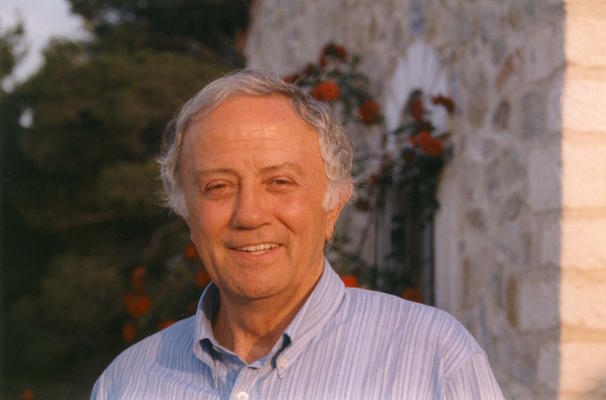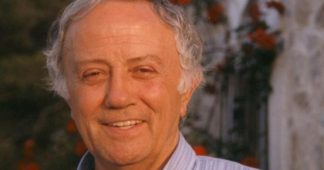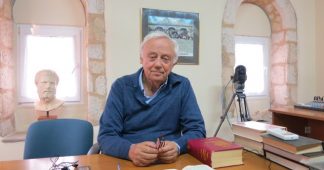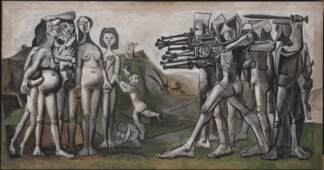By Dr Seema Mahesh
BHMS, MD(hom), Dip IACH, MSc (Medical sciences), Research Head , IACH Greece, Director, Centre For Classical Homeopathy, Bangalore, India
The history of Homeopathy is not complete without discussing the phenomenon called Prof. George Vithoulkas (GV). His life and work changed the face of homeopathy and brought it to the forefront of medical conscious in the last six decades.
To begin with, homeopathy is a very profound therapeutic system that requires intense study, commitment and love for humanity on the part of the healer. Without these, it leads to matching of symptoms in the book to that in the patient or combining a few close enough remedies or even coming up with fanciful ideas. This happened even during Hahnemann’s time and he himself coined them as the putative “mongrel sect”. This has continued to this day and age, where unconfirmed ideas and practices are being labelled ‘homeopathy’ and
every practice that uses high potencies is considered as such. However, homeopathy is set on fundamental principles which are unchangeable. Not because they were set by the founder of homeopathy but because these are observations of natural phenomena, which do not change. We do not expect gravity to change because science has advanced, do we? In this scenario of shortcuts and fantasies, Prof Vithoulkas renamed the scientific, principled homeopathy as “Classical Homeopathy”. We must be grateful for such distinction as it becomes more and more important to separate the grain and the chaff if homeopathy is to stand firm in face of the denial, criticism and outright ridicule it faces day in and day out.
Prof George Vithoulkas was born in Athens, Greece on 25/07/1932. He became an engineer and worked in South Africa in his 20s, where he came across homeopathy. He then went on to India to train professionally in homeopathy, and the rest, as they say, is history.
His establishment of Center of Classical Homeopathy in Athens was remarkable in that 30 medical doctors practiced homeopathy as taught by him, catering to a large number of patients. His teachings were sought after by students from around the globe and he traveled intensively to spread classical homeopathy. He did this amidst protests and challenges posed not just by the conventional medicine but by homeopaths as well. This was because Prof Vithoulkas insisted on the difficult path of sticking to the rules in homeopathic practice. At the risk of being a pariah, he continued his work. Students have heard him describe his situation as depicted in a movie scene – fighting an army alone, pretending to be an army by himself. The result of such toil was the establishment of scientific homeopathy in the minds of thousands of budding students. International Academy of Classical Homeopathy was founded on just such a vision in 1995. For his work in making homeopathic education scientific, he was awarded the prestigious “Right Livelihood Award”, also known as the Alternative Nobel Prize, in 1996. Since 1995, students from over 95 countries have been educated and trained by him at the academy. His students have become successful practitioners, cutting edge researchers and impactful policy makers.
Groundbreaking concepts and research venture
Why Prof. Vithoulkas is a phenomenon unto himself is revealed when we look at his writings. He began work around the time the world’s health scenario began to change with the advent of many new classes of chemical drugs and the opening of the world to new concepts and morals. In this paradigm, the older concepts needed new interpretation (not alteration). There was a need to make people understand how the concepts of homeopathy were to be applied in the new age. Diseases were becoming more complicated and newer diseases were emerging. The world began to shift from being predominantly ‘plagued’ to being majorly ‘cancer ridden’ and ‘depressed’.
One of the first books of GV was ‘Essence of Materia Medica’, where the approach to prescription based on finding the “essence” of patient’s pathology was taught. This involved understanding the core pathology of a person’s suffering, that defines almost every symptom encountered in that person and prescribing based on that. This is a difficult and yet extremely valuable strategy. However, many people sought to make their own “mental strategies of prescribing” after this, forgetting that what Prof Vithoulkas taught was one of the many strategies required in individualized prescribing. He never said prescribe based only on psychological attributes of a patient – a misconception about classical homeopathy that many hold. Nor did he say that we must overanalyze and overextend this idea. The concept of essence is purely based on observation. There is no room for a practitioner’s assumptions and imaginations here. This strategy was a new one and has enabled deeper understanding and better prescribing by homeopaths.
The book ‘Science of homeopathy’ (translated in 36 languages) taught us how to view human health by giving the definition of health for the first time. This was in order to provide a direction for all treatment efforts. Prof Vithoulkas equates absolute health to absolute freedom. This is defined with respect to each plane of the human being, viz., the physical, the mental and the emotional. With a detailed analysis of the construction of the human organism, in this book, GV provides clarity like never before as to what constitutes health and where disease begins, what the response to a remedy means and what to do in each scenario. This understanding of the model of a human being brings forth absolute clarity for prescription and prognosis for homeopaths, making this a structured, reliable and reproducible system.
The second part of the Science of Homeopathy, viz., the ‘Levels of Health’ opened up new dimensions in understanding of human health, disease and response to treatment. In this, GV provided a model to explain the varied expression of diseases and response to treatment. Human health is a wide spectrum, spanning from very sick newborn babies to centenarians. Each person is born with a certain potential for health and depending on how well he lives, how his psychological situations are, and the diseases and treatments he goes through in life, this may be fully realized or compromised. The characteristics of very healthy, to the lesser healthy people are clearly outlined in this book so we know whether the patient is progressing through treatment. Many research papers have already been demonstrating the proof of this concept and it can become a very useful prognostic tool for any healthcare practitioner with scientific validation.
‘The Continuum Theory’ was propounded by GV to explain the chain of events leading up to a person’s health at any given point in time. It explains the phenomenon of healthy efficient immune responses being undermined by chemical drugs and other influences and eventual compromise of the same for the sake of survival of the organism, leading to chronic inflammatory diseases. While this concept has been proven time and again by immunological study, GV was the first to explain the bigger picture involved, and not just about a single immunological parameter or gene. As immunologists agree, the expression or lack of such parameters (leading to disease) are highly individualistic and disparate, and very difficult to pin down. This is because the response is always by the organism as a whole, which is explained by the said theory. This kind of insight has led to a shift in the way homeopaths and even conventional researchers view the disease development process.
His biggest contribution so far, however, has been Materia Medica Viva. The thirteen volumes (so far) of this great masterpiece are an experience unto themselves. The description of the remedies, the differentiating nuances between them, the understanding of the specific pathology and its development in each remedy, and the depiction of human suffering and its meaning in each scenario are so vivid that a practitioner finds oneself being guided by the master personally as he reads them. These books are indispensable if one is ever to master homeopathic materia medica (pharmacopeia).
GV has spearheaded a considerable number of research projects to enable strong evidence for homeopathy. He has over 30 peer reviewed papers published apart from the hundreds of articles in non-peer reviewed platforms. Many of these studies have been presented in international conventional medical conferences of repute and have generated wide interest in the concepts of health and disease as he has taught. He recommends that serious researchers of homeopathy must develop their own methodology as trying to fit the concepts of homeopathy to the methods of conventional research. There is a fundamental difference in the perspective of homeopathy and conventional medicine which prevents the adaptation of the positivist approach to homeopathy. The tenet on which the whole system of homeopathy stands is “individualization”, whereas conventional medicine is about generalization. Therefore, to expect evidence in homeopathy based on the double blind methods of conventional medicine would be wrong. In this direction, he has encouraged his team and students to publish case reports and series, which are at the basic level of evidence but without whom building larger structures may not be feasible. His vision of how homeopathic research must be conducted is a guiding light for serious researchers.
Awards and Recognition
GV has been honored with innumerable recognitions, the most notable being the Right Livelihood Award (alternative Nobel prize). He has been conferred honorary professorship by 12 Medical Universities and is the senior associate member of Royal Society of Medicine. The list is an exhaustive one and well deserved as all who have been touched by his expertise would agree.
Prof George Vithoulkas the teacher
GV has been called a ‘teacher of teachers’ and has taught most of the famous teachers of homeopathy in the world today. He teaches homeopathy on a sound scientific basis, the adaptation of which will automatically translate to success in practice for anyone who does it faithfully. In his teachings there is no room for assumptions and imaginary ideas but only exact observation and comprehension of the patient as it is. Above all, GV encourages his students to stay on the path of truth as this is the only way a homeopath can be free of baggage – a prerequisite to become expert at observing another human being without prejudice. He exemplifies this state in his own life and thousands of students and patients have been transformed by the truth in him.
Typically, GV teaches students to understand the pathology in a patient – when and what went wrong. This is indicated by change in the general make up and psychological profile of the patient. This is coupled with the knowledge about the past and family history and triangulated with the current symptomatology to arrive at the prescription. At this time, a prognostic expectation is set according to the level of patient’s health and the graph of the patient’s progress under treatment should match it more or less. Every prescription must stand the test of logic and be based on sound observation. If there is no clarity, then there is no prescription. This is the seriousness with which the students of the IACH are taught to practice homeopathy. As a result, high level of expertise and uniformity is achieved among the diplomates of the academy – a feat very difficult to achieve in homeopathy. It is GV’s opinion that only education of the highest standard can change the choppy scene of homeopathic practice seen hitherto. In this wake, he has created a 2-year E-Learning diploma program https://www.vithoulkas.edu.gr , which has been adopted as a postgraduate program by many medical universities worldwide. Presently, there are diplomates of the academy in over 65 countries.
In conclusion, Prof Vithoulkas has dedicated his life to homeopathy and achieved a new level of precision and success in practice. He has changed the face of homeopathic academia worldwide by teaching it in the classical manner and by heading research projects incorporating the principles of homeopathy. He has been a benefactor of humanity with his work and his life is an example for others to emulate if one hopes to contribute to the society. His students are ever grateful for a teacher who lights their paths and his patients are even more grateful for the relief and freedom he has rendered them with homeopathy.
We remind our readers that publication of articles on our site does not mean that we agree with what is written. Our policy is to publish anything which we consider of interest, so as to assist our readers in forming their opinions. Sometimes we even publish articles with which we totally disagree, since we believe it is important for our readers to be informed on as wide a spectrum of views as possible.










